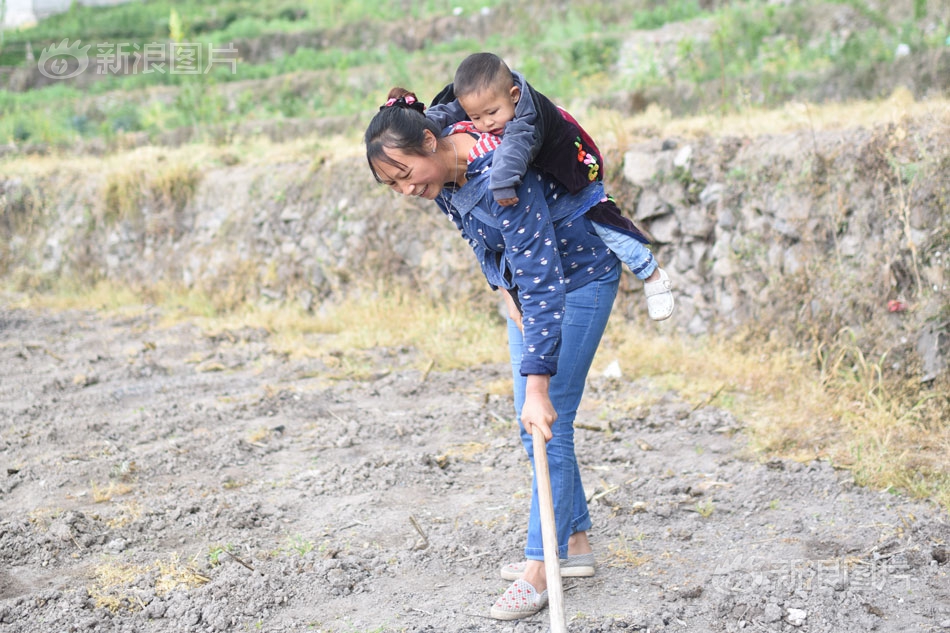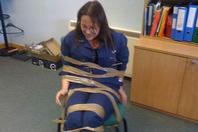A Pet's Death Can Hurt MoreThan Losing a Fellow Human
丧宠之痛痛于丧亲
Dyani Sabin 戴妮·萨宾
The perfect coffin for a gerbil is a Celestial Seasonings tea box. With the tea bags removed, the white wax-paper bag inside is the ideal size funeral shroud for a tiny body. This unfortunate factoid, like much of the information about how to dispose of a beloved pet's body, comes from personal experience. I buried four gerbils in my backyard as a child, complete with incense on their graves and a few words.
As an adult with a puppy well on his way to being over 60 pounds, I hadn't given much consideration to how I'd deal with other pet deaths until a friend asked me, “this is a terrible question, but what do you do when he dies?”
I dug into the question, and as I did I found that I wasn't alone in wondering—but that there isn't a great answer.
The experts I talked to emphasized that our relationship to pet loss has changed over the last century. “It's not surprising to me that we feel such grief over the loss of a pet, because in this country at least they are increasingly considered family members,” says Leslie Irvine, a sociologist at the University of Colorado-Boulder.
Pets become family members because they actively shape how we live. “A lot of people who have pets wake up at a certain time, not because of any alarm clock or any need of their own but because their dog needs a walk,” says Irvine.
And it isn't just a daily ritual that makes pets familial. We form attachments to animals in the same way that we form attachments to people, says Cori Bussolari, a psychologist at the University of San Francisco. She points to a study in Science from 2015 that found when people gazed into a dog's eyes, both the person and the dog had increased levels of oxytocin. Oxytocin, sometimes called the love hormone, regulates social interactions. It's released when humans stare into each other's eyes, and when parents look at their newborn children. “I'm sure if you did the study with other animals it would be the same,” Bussolari says.
I already imagine losing my puppy will be harder than burying my gerbils, but I also didn't stare into my gerbils' eyes quite as much. No matter the species,our bonds with our pets are unlike our other relationships. For one, Bussolari says, they're entirely dependent on us. For another, Irvine says, “we idealize animals, especially dogs. We create them as these almost angelic characters, so we have this idea of unconditional love for us.” When they die, she explains, it almost seems like a violation of this mythos we've built around them.
On a personal level, the death of a pet is often a person's first exposure to the loss of a close relationship, says Thomas Wrobel, a psychologist at the University of Michigan-Flint. Human death has been relatively sanitized, he explains. We have an industry for funerals and cremations, and you don't typically have to deal with a dead body yourself. “With pets it's a lot more in your face,” says Wrobel. “Unless you do the cremation option, you've got this dead dog you have to deal with, which is a lot more intimate experience of the death.”
With pets, you also have to decide if you are going to euthanize, and when. In a study of 305 pet owners,Bussolari found that almost seventy percent chose to euthanize their pet. It's often medically necessary—the kindest thing to do for a dying animal—but the decision can wrack the owner with guilt.
When you lose a person, there are rituals—the funeral, the memorial—and it's acceptable to take time off work and talk about your loss. “What people grieving the loss of a pet don't realize the first time they lose a pet is the strength of the grief and how long it lasts,” says Wendy Packman, a psychologist at Palo Alto University. “So it surprises the griever, and it really surprises the people who aren't sympathetic to pet loss.”Although Packman has found that the depth and length of grief is similar to how we grieve people, this social stigma causes it to feel more painful.
对一只沙鼠来说,诗尚草本茶叶公司的茶盒就是一副完美的寿棺。取出袋装茶,里面白色的蜡纸衬袋拿来裹住娇小的身躯,大小刚刚好。跟很多介绍怎样处置心爱宠物的尸体的信息一样,这一令人叹惋的亦真亦假场景来自个人经历。孩童时期的我把4只沙鼠埋在后院,正儿八经地在它们的坟头焚上几炷香、说上几句话。
现在,作为成年人,养着一只体重直逼60磅以上的小狗,我从来没有好好想过宠物死了该怎么办,直到有位朋友问我:“这是一个令人不快的问题,他死了你怎么办?”
我认真思考了这个问题,在这个过程中发现不是只有我一个人在琢磨这件事,而且这个问题也没有很好的答案。
我问过的专家们强调,我们与宠物过世的关系在过去一个世纪里发生了变化。科罗拉多大学博尔德分校社会学家莱斯莉·欧文说:“失去宠物让人们非常悲痛,我并不感到吃惊,至少在我们这个国家,人们越来越把宠物当做家人来看待。”
宠物成为家庭成员是因为它们有力地塑造了我们的生活。欧文说:“很多养宠物的人到了一定时间就会醒来,不是被闹钟叫起来,也不是因为自己有什么需求,是因为狗需要出去遛遛。”
宠物成为家庭成员不仅是因为它们融入我们的日常生活。旧金山大学心理学家科丽·布索拉里说,我们对动物产生情感跟我们对人产生情感的机制是一样的。她指出,《科学》周刊2015年的一篇论文称,当人凝视狗的双眼时,人与狗体内的催产素水平双双上升。催产素又称“爱的荷尔蒙”,可以调节社交。当两人四目相接或者当父母看着刚出生的孩子时,身体就会释放这种物质。布索拉里说:“我敢肯定,换用别的动物来试验也一样。”
我已经猜想失去我的小狗会比当年埋葬沙鼠更令人难过,不过那时我倒也没有这么经常地与沙鼠们四目相接。无论是什么宠物,我们与它们的关系与我们的其他关系通通不同。首先,布索拉里说,宠物完完全全依赖我们。其次,欧文说,“我们会把动物、特别是狗理想化。我们赋予它们几乎天使般的角色,认为它们对我们有无条件的爱”。当它们死去时,那简直像是亵渎了我们围绕它们打造的这个神话。
密歇根大学弗林特分校的心理学家托马斯·弗罗贝尔说,就个人而言,宠物死亡往往是一个人第一次遇到丧失亲密关系的情况。人类的死亡相对来说已经得到了净化处理。我们有专门的丧葬产业,一般不必亲手处理尸体。弗罗贝尔说:“宠物则基本无法回避。如果不选择火葬,死掉的狗总得想个办法来处理,这样一来跟死亡的接触就直接多了。”
另外,对于宠物,我们还得决定是否采用安乐死以及何时采用安乐死。布索拉里调查了305名养宠物的人,发现近70%的人决定对宠物施用安乐死。从医学角度来说,这样做往往是必要的——对一只奄奄一息的动物来说是最仁慈的做法——然而这个决定带来的内疚可能让主人饱受煎熬。
当亲朋好友离世时,我们会完成一套仪式——葬礼、悼念——为此休假、倾诉悲痛都是容许的。帕洛阿尔托学院的心理学家温迪·帕克曼说:“痛失宠物的人第一次遇到这种情况时意识不到这种悲伤有多么强烈,持续多么长时间,所以悲痛者感到意外,而体谅不到丧宠之痛的人也真的很惊讶。”帕克曼发现丧失宠物的悲痛程度、持续时间跟我们为亲朋好友亡故而感到的悲痛差不多,但是社会的不认同使之愈发痛苦。(于晓华译自美国《大众科学》月刊网站5月1日文章)

更多猛料!欢迎扫描左方二维码关注新浪新闻官方微信(xinlang-xinwen)
推荐新闻
- 【 新闻 】 朝鲜:遗憾美取消特金会 愿意随时会晤
- 【 军事 】 印度为何总想超中国成武器出口大国
- 【 财经 】 4富豪赴乌克兰打针延寿:类似喝尿疗法
- 【 体育 】 欧联杯-格列兹曼两球 马竞3-0第3次夺...
- 【 娱乐 】 LA出嫁!阿娇穿抹胸婚纱做最美新娘
- 【 科技 】 人民日报:快递柜不该收“二茬钱”
- 【 教育 】 中国高校科技经费排名 256所高校过亿
违法和不良信息举报电话:010-62675637
举报邮箱:jubao@vip.sina.com
Copyright © 1996-2018 SINA Corporation
All Rights Reserved 新浪公司 版权所有






















